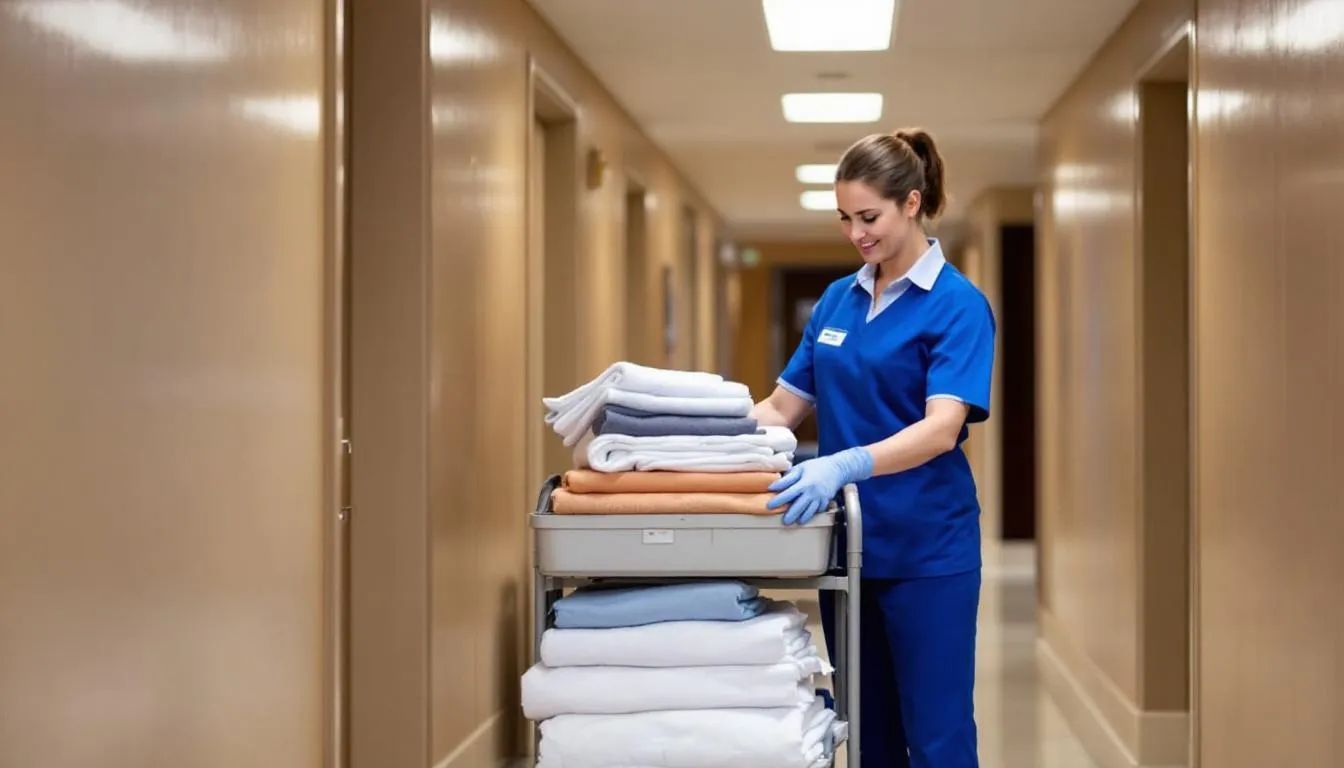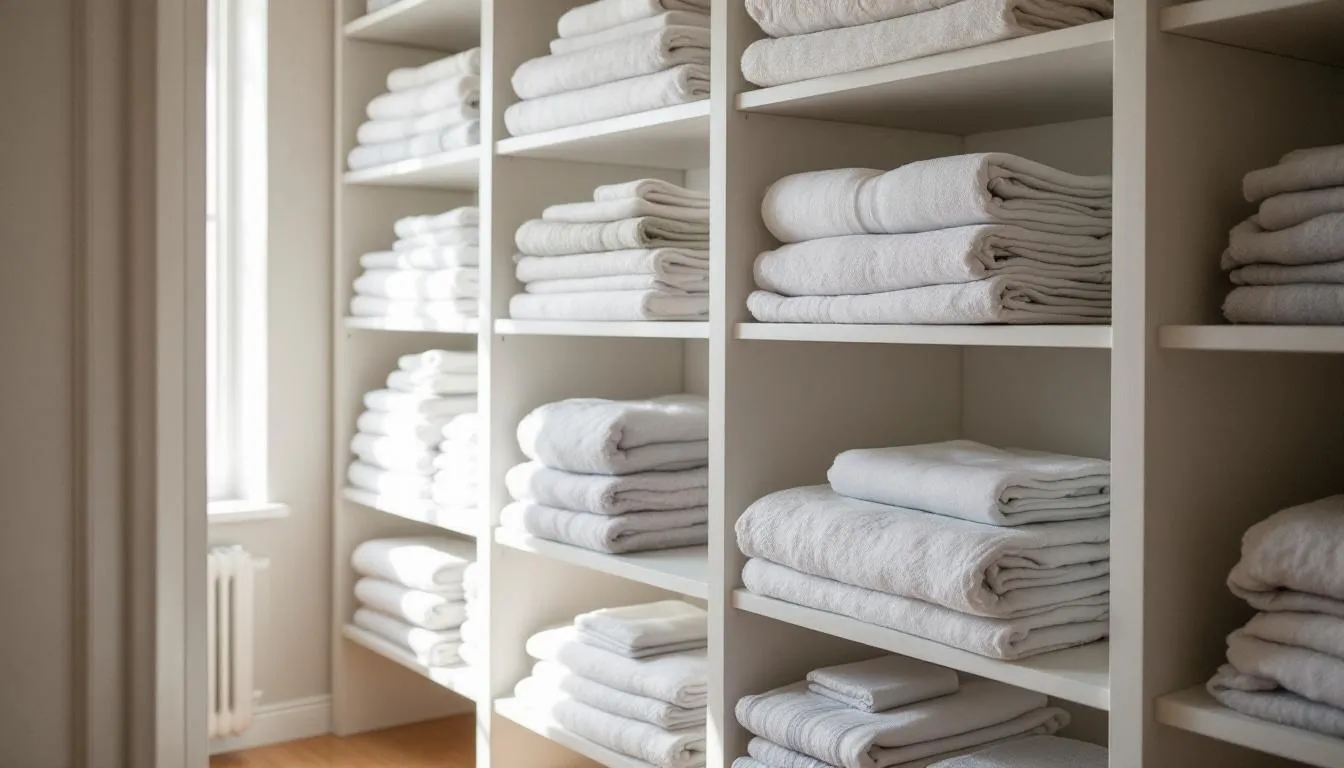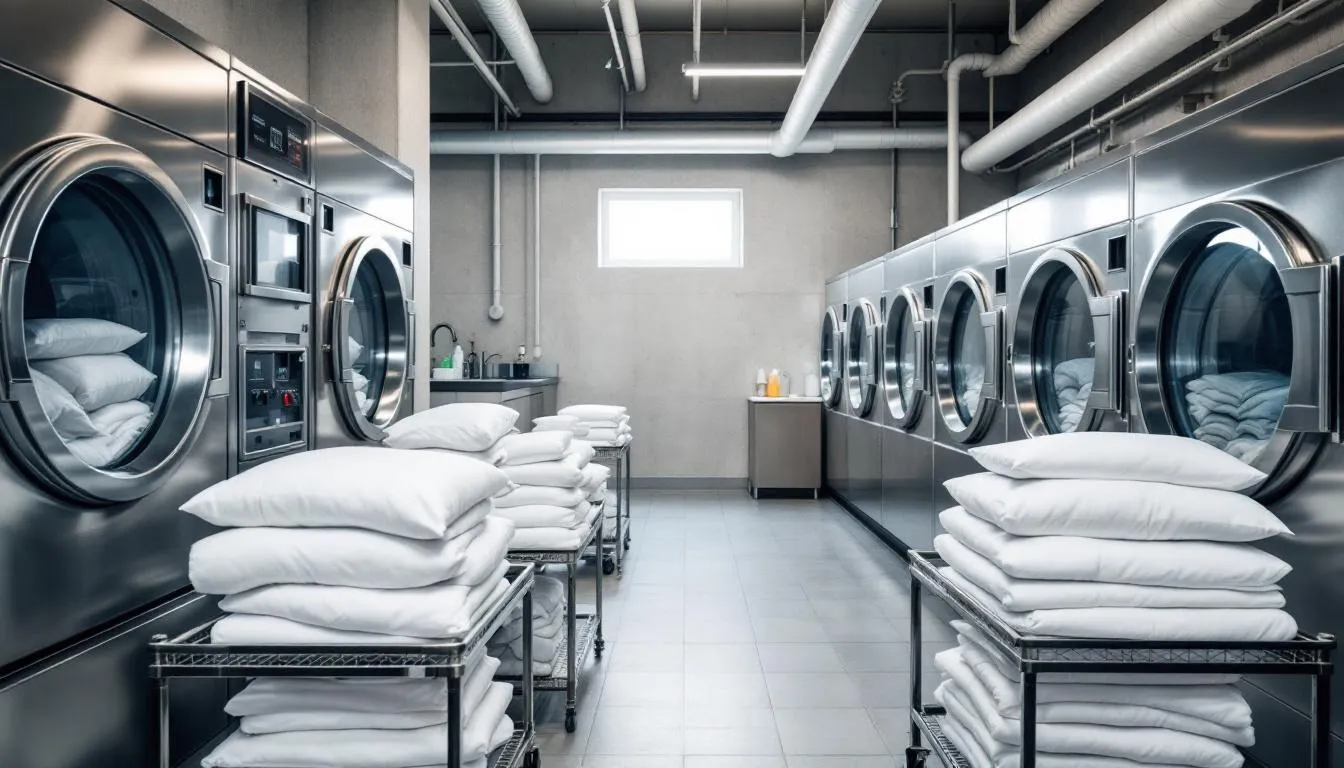Hotel Linen Par: Essential Tips for Smarter Hotel Inventory Management
 Mika Takahashi
Mika Takahashi Mika Takahashi
Mika TakahashiRunning a hotel smoothly means keeping a close eye on your inventory, especially linens or also known as linen par level. Getting the right amount of linens isn’t just a numbers game—it directly affects your guests’ comfort and your bottom line. Too few linens can lead to unhappy guests and frantic laundry runs, while having too many means money and storage space wasted.
In this guide, we’ll break down everything you need to know about linen par levels—from the basics to smart strategies that help you save money without sacrificing guest satisfaction.

Think of linen par as the magic number of linens your hotel needs to keep operations running smoothly. “PAR” stands for periodic automatic replenishment—a methodical way to figure out the minimum linen stock you need to keep things flowing, especially during those laundry turnaround periods.
When we say “1-par,” we mean enough linens to fully outfit your entire property for one guest cycle: one set on every bed, one towel per guest, and all the other essentials like pillowcases and blankets.
By keeping the right linen par stock, your housekeeping team won’t ever run into linen shortages, even while laundry is in full swing. This system covers everything from sheets and bath towels to specialty items like makeup removal washcloths, ensuring your hotel always has what it needs on hand.
Most hotels stick to the tried-and-true 3-par rule. That means having three full sets of linens per bed, spread out across the operation:
For example, if your hotel has 100 rooms with one bed each, you’d want at least 300 full linen sets on site at all times. That includes sheets, towels, and all other wholesale guest towels and bedding items.
High-end hotels often go beyond the standard 3-par, keeping 4 or 5 sets per bed. This extra stock helps cover longer laundry cycles, delivery delays, or simply meets their higher standards for fresh linens.
If your hotel uses off-site laundry services, you’ll probably want to add an extra par set to cover linens in transit. Plus, if you offer amenities like spas, pools, or fitness centers, you’ll need more towels to keep up with demand.
Some linens, like mattress protectors, don’t get swapped out every day. For these, a lower linen par level—around 1.25 to 1.5 par—is more cost-effective since they last across multiple guest stays without daily laundering.

Getting your par level right starts with some straightforward math—but there’s a bit more to it than just numbers.
Number of beds × Par level = Total linen inventory needed
Imagine a hotel with 150 rooms:
Using the 3-par rule:
For towels, if you provide 4 bath towels per room:
Sheets take a bit more care. The minimum recommendation is 3 sets per bed, covering both flat and fitted sheets.
Many luxury hotels prefer two flat sheets and one fitted sheet per set. This setup helps when you need quick replacements, especially in busy times.
Laundry turnaround time plays a big role here. Hotels with on-site laundry can usually stick to 3-par, but if you send linens out, you might need 4 or 5 par levels to cover the extra time.
Don’t forget to look at your historical usage data when planning wholesale bedding needs. Seasonal spots like beach resorts might need to boost stock during peak times.
Towels are tricky because usage varies by guest and area.
Standard practice is 3 sets per room, which means 12 bath towels per room (4 towels × 3 par), plus hand towels and washcloths.
Adding makeup removal washcloths (2 per room) can help your main white towels last longer by handling the messier makeup stains separately.

Your ideal par isn’t set in stone. Several factors come into play:
If your hotel is booked solid most of the time, you’ll need more linens. The national average occupancy rate is about 64%, but this can swing wildly depending on location and season.
Vacation rentals often see different patterns, with guests staying longer but using linens more intensively.
If you have an on-site laundry, you can turn linens around quickly and stick to 3-par. Off-site laundry or longer processing times mean you’ll want to keep 4 or 5 par levels to avoid running short.
Winter means more blankets; summer means more towels for pools and beaches. Plus, big events like conferences can cause sudden spikes in linen usage.
Linens get stained, torn, or lost. Some hotels see 15-20% annual loss, so plan your linen par level to include a buffer for replacements.
Guest types also matter—business travelers, families, and long-stay guests all use linens differently.
Good linen management is about more than just numbers. Here’s how to keep things running smoothly:
Don’t wait months to check your stock. Monthly audits help catch problems early so you can reorder before you run out.
Set reorder points so you buy linens as soon as you hit your minimum par level. Automated systems make this easy, but even manual checks work if staff are trained.
Keep clean and dirty linens separate to avoid contamination and extend linen life.
Train your housekeeping team on best practices for handling and storing linens to reduce loss and damage.
Inventory software can track stock levels, schedule maintenance, and even automate orders.
Build strong relationships with suppliers who can deliver quickly, especially during busy seasons.

Balancing enough linens without overspending is key. Here are some ways to optimize:
Turn stained linens into cleaning rags instead of tossing them.
Pretreat stains to extend linen life and delay replacements.
Bulk purchases save money but watch your inventory so linens don’t sit unused and degrade.
Keep laundry machines and carts well-maintained to avoid damage.
Track costs per occupied room and replacement rates to spot trends.
Use historical usage data to adjust your par levels and budget wisely.
Using a hospitality linen par calculator takes the guesswork out of inventory planning. These tools let you tailor your linen needs based on your hotel’s unique details.
Modern calculators can link with your inventory system to trigger automatic reordering and adjust linen par levels based on real-time data.
Keep recalculating as your hotel grows or changes to keep your linen management efficient.
Test different scenarios with your calculator to find the best balance of cost and service.
Document your par level decisions so your team stays aligned and can adjust quickly when needed.
Getting your linen par right is a game-changer for your hotel’s efficiency and guest happiness. From calculating your needs to fine-tuning your inventory, a smart approach saves money and keeps guests smiling.
Whether you run a cozy boutique or a sprawling resort, these principles scale with your operation.
Start by figuring out your current par needs, then put these best practices into action. Keep monitoring and adjusting, and your linen par system will keep delivering value as your hotel evolves.
Remember, linen par management isn’t a one-and-done task—it’s an ongoing process. Stay engaged, use the right tools, and be ready to adapt as your hotel’s needs change.